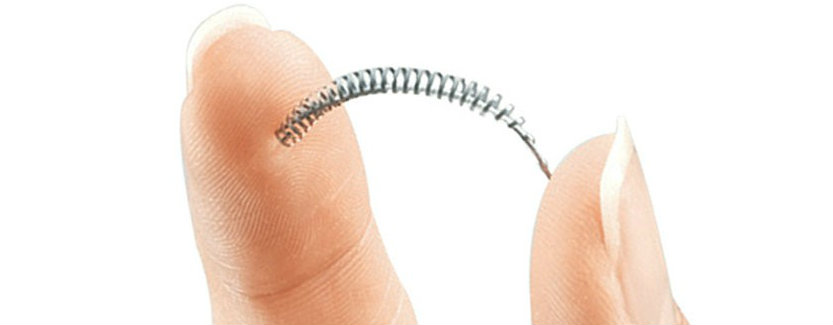
Thousands of women have said the Essure birth control device caused serious health issues. On Friday, July 20, 2018 (just days before the release of The Bleeding Edge documentary), Bayer announced that it would discontinue sales of its Essure permanent birth control device in the United States after December 31. This was welcome news to the many women who have advocated against the device.
According to Bayer, this decision was not related to the current litigation or safety issues but because of a decline in sales.
Essure is a permanently implanted birth control device for women, an alternative to having your “tubes tied.” A physician inserts flexible coils through the vagina and cervix and into the fallopian tubes. Over a period of about three months, tissue forms around the inserts. This build-up of tissue creates a barrier that keeps sperm from reaching the eggs.
In April 2018, the US FDA placed restrictions on the sale and distribution of Essure following several reported complaints. The patient safety action was a unique type of restriction requiring that any woman considering use of the permanent contraception device be fully informed of potential risks.
That meant that Bayer could sell it only to health care providers and facilities that guarantee women have been fully informed about its potential side effects.
The FDA estimates that Essure has been used by more than 750,000 women worldwide since it was first approved on November 4, 2002.
Over a 15-year period, from November 2, 2002 through 2017, the FDA received more than 26,000 reports of problems. The most frequently reported problems included pain/abdominal pain, heavier menses/menstrual irregularities, headache, fatigue and weight fluctuations. Some women have claimed Essure caused serious health issues such as the device becoming dislodged or broken, migrating to other organs in the body.
Essure has been the subject of approximately 16,000 lawsuits or claims filed by those who reported severe injuries.
This doesn’t mean that women who have the device implanted should have it removed. If you have concerns, the best advice is to speak with your gynecologist.
According to a Consumer Reports article, women who already have an Essure device implanted should take these precautions.
Complications from the Essure device are migration and perforation of the fallopian tubes, which can puncture the uterus and other organs. If you have suffered serious complications due to an Essure device, contact one of our attorneys for a free, no-obligation review of your situation.
If you would like to receive news and blog updates on a regular basis, sign up to receive our email newsletter. Your email address will only be used to send you our newsletter and respond to inquiries.
Past results afford no guarantee of future results and each case is different and is judged on its own merits. The choice of a lawyer is an important decision and should not be based solely upon advertisements.
Image from Bayer Healthcare Pharmaceuticals showing the birth control implant Essure.